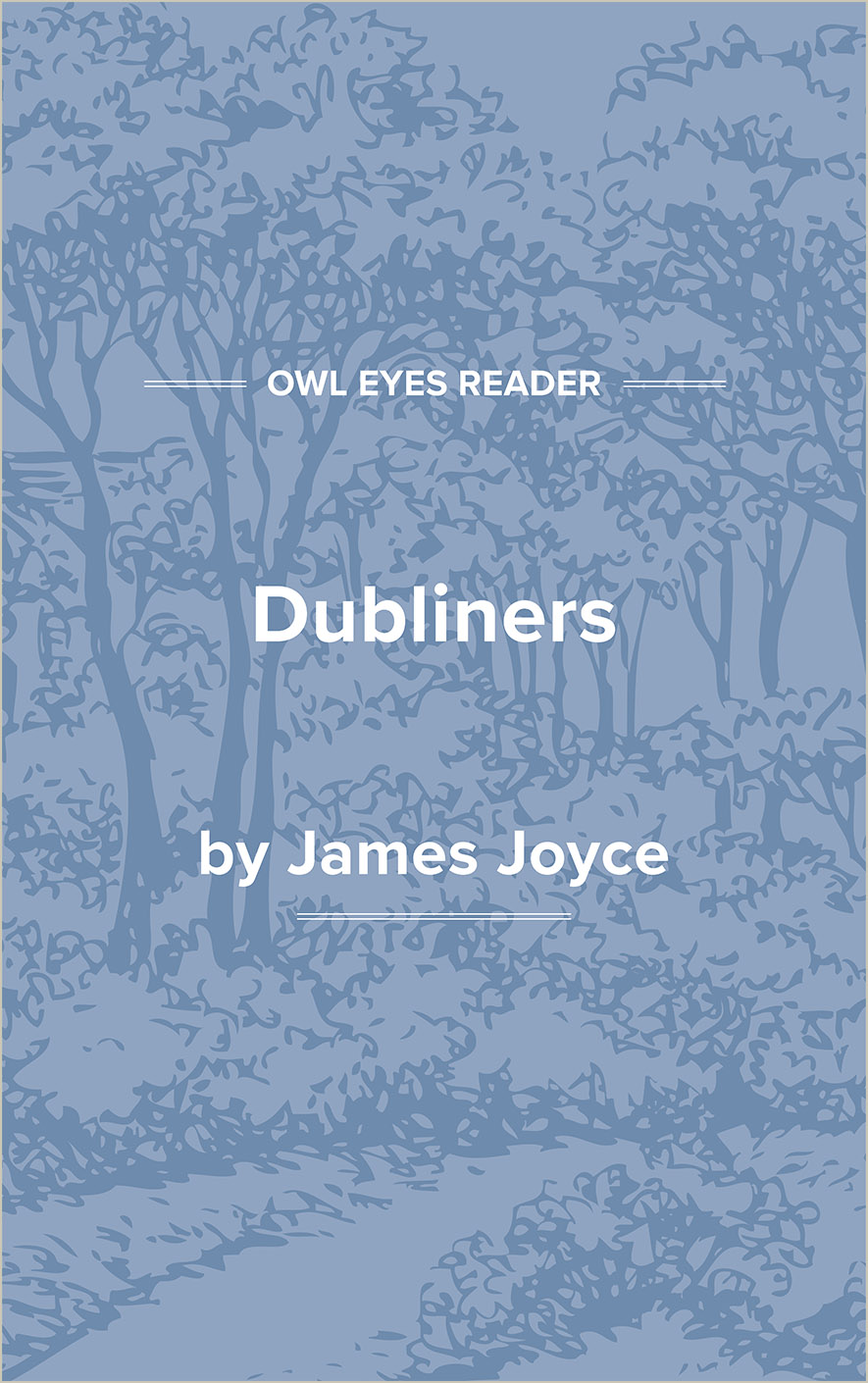Analysis Pages
Facts in Dubliners
Facts Examples in Dubliners:
The Sisters
🔒"the notice for the Freeman's General..." See in text (The Sisters)
"crossed ourselves..." See in text (The Sisters)
"chalice..." See in text (The Sisters)
"altar..." See in text (The Sisters)
"towards the secrecy of the confessional..." See in text (The Sisters)
"the different vestments worn by the priest..." See in text (The Sisters)
"the meaning of the different ceremonies of the Mass..." See in text (The Sisters)
"Napoleon Bonaparte..." See in text (The Sisters)
"catacombs..." See in text (The Sisters)
"to pronounce Latin properly..." See in text (The Sisters)
"the Irish college in Rome..." See in text (The Sisters)
"S. Catherine's Church..." See in text (The Sisters)
"Great Britain Street..." See in text (The Sisters)
"I'm always saying to that Rosicrucian there..." See in text (The Sisters)
"the Euclid..." See in text (The Sisters)
"stirabout..." See in text (The Sisters)
An Encounter
🔒"the Dodder..." See in text (An Encounter)
"the Liffey..." See in text (An Encounter)
"Ringsend..." See in text (An Encounter)
"Smoothing Iron..." See in text (An Encounter)
"cricket..." See in text (An Encounter)
"the Wharf Road..." See in text (An Encounter)
"this college..." See in text (An Encounter)
"Hardly had the day dawned..." See in text (An Encounter)
"Lord Lytton..." See in text (An Encounter)
"Sir Walter Scott..." See in text (An Encounter)
"Thomas Moore..." See in text (An Encounter)
"sixpence..." See in text (An Encounter)
"The Apache Chief..." See in text (An Encounter)
"Indian battles..." See in text (An Encounter)
"Pluck and The Halfpenny Marvel..." See in text (An Encounter)
"The Union Jack..." See in text (An Encounter)
"the Wild West..." See in text (An Encounter)
Araby
🔒"The Arab's Farewell to his Steed..." See in text (Araby)
"a ballad about the troubles in our native land..." See in text (Araby)
"a come-all-you..." See in text (Araby)
"O'Donovan Rossa..." See in text (Araby)
"the Christian Brothers' School..." See in text (Araby)
"brown..." See in text (Araby)
"The Memoirs of Vidocq..." See in text (Araby)
"The Devout Communnicant..." See in text (Araby)
"The Abbot, by Walter Scott..." See in text (Araby)
Eveline
🔒"Buenos Ayres..." See in text (Eveline)
"Melbourne..." See in text (Eveline)
Counterparts
🔒"What do you put in your gab for..." See in text (Counterparts)

